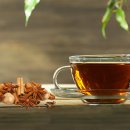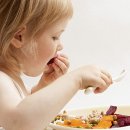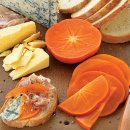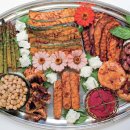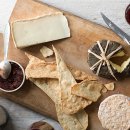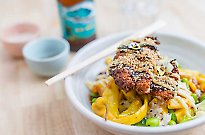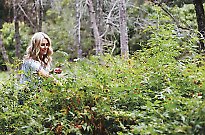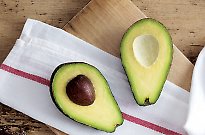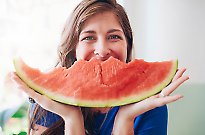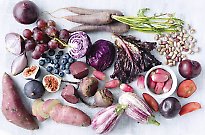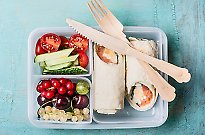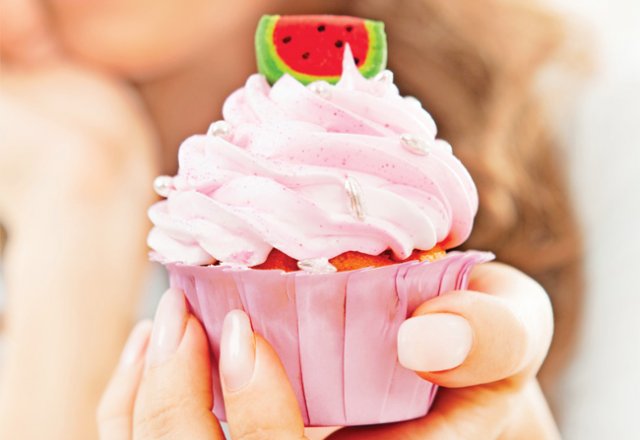
Diabetes - are YOU at risk?
Diabetes - are YOU at risk?

Diabetes is Australia’s fastest growing chronic disease and the total number of Australians with diabetes and pre-diabetes is estimated at 3.2 million. As the sixth leading cause of death in Australia, it is critical we prevent more of us getting diabetes.
White, refined sugar is found to be the number-one attributor to type 2 diabetes, and everything it is used in also. White flour and other products that contain refined carbohydrates turn to sugar in our body, and then into fat if we don’t burn it off.
Foods to avoid
These sugars are carbohydrates that are commonly referred to as ‘simple’ sugars. They don’t require any significant digestion, and both can quickly enter your bloodstream causing your blood sugar to dramatically increase. They’re in so many things like fizzy drinks, energy and sports drinks, milky flavoured drinks and processed foods like doughnuts, cakes, biscuits, muffins, breakfast cereal, pasta, burger buns and flat bread, lollies, dairy milk chocolate and most muesli bars. ‘Complex’ carbohydrates take much longer to absorb in your bloodstream than the refined types. This means we are full for longer, so eat and crave less.
Carrying fat around your hips or thighs isn’t as dangerous as when it is stored higher up around the middle. This is because much of that fat is deep within the belly surrounding the abdominal organs and liver. This type of deep fat is closely linked to insulin resistance and diabetes. In fact, many studies show that waist size is a better predictor of diabetes risk than BMI (body mass index).
You’re at risk if your waist circumference is more than 90 centimetres if you’re a woman and for men – 100 centimetres.
Let’s look at a few contributing factors that may be implicated in sugar and carb cravings. The adrenals glands are highlighted here, as once we’re in the ‘fight or flight response’, our digestion pretty much shuts down, which then impedes absorption. The result: we’re tired and cranky because we have low blood sugar due to malabsorption, so we feel like a hit of sugar to wake us up, and it usually will. But the problem (one of them) is that this release of serotonin we get (a happy hormone) is short-lived. So on the seesaw we continue. Stress is a major factor in most, if not all, disease.
Foods to embrace
Add whole foods that contain beautiful oils like avocado, olive and coconut oil, tahini, coconut, hemp, chia and flax seeds and complex carbohydrates like nuts and seeds, fruit and veg, legumes and whole grains to your diet. Protein is also essential to control sugar levels. So start your day with an egg, organic tempeh or tofu, hemp seeds, lovely homemade baked beans, almonds, oats, quinoa, millet or amaranth. Be sure to eat complex sugars also – those still in their original state – not highly refined or processed. Things like coconut palm sugar and nectar, rapadura, organic dried fruit, rice syrup and dark agave.
Artificial sweeteners
Many studies have linked artificial sweeteners to degenerative, neurological and chronic disease, and apart from these findings, artificial sweeteners can actually make us crave sugar. The tongue will detect these as a bitter flavour, which stimulates your bitter taste buds into thinking that food is on its way as it stimulates stomach juices to prepare for it. Eating too much refined salt will also make you want sugary things, so avoid canned, packaged and cheap take away foods as much as you can.
Not only will your chances of getting diabetes dramatically decrease but your health will improve so much that your chances of enjoying wellness at every level of your being will increase also. Decide not to be a preventable statistic. It’s easy, affordable, fun and yummy to be well.
Janella shares with us one of her favourite healthy recipes that is high in fibre and won’t spike blood-sugar levels. From her book, Janella’s Wholefood Kitchen, published by Allen & Unwin.
Next: 3 good reasons to eat breakfast>>

